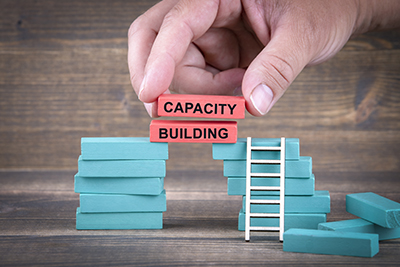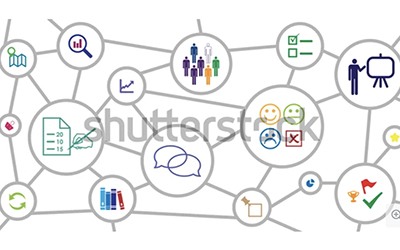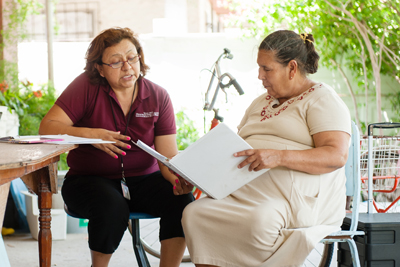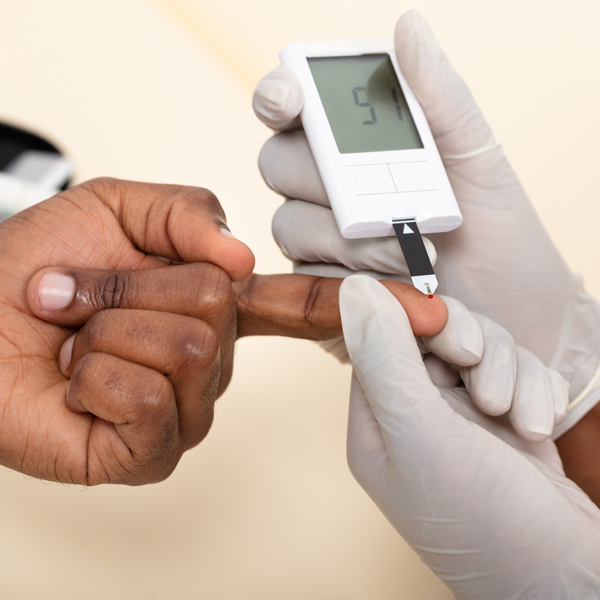Center for Community Health and Aging
Increasing the capacity of communities to improve population health and successful aging
CHARTING THE FUTURE OF HEALTHY COMMUNITIES AND AGING
Any one individual’s health status is largely the result of their actions, as well as the social and cultural context within which they live (their “community”). The mission of the Center for Community Health and Aging is to increase the capacity of individuals, organizations, and communities, to improve population health and aging across the life-course. Over its twenty-year history, the center has been involved in more than 150 projects, with funding of more than $80 million. Project topics include evidence-based health and wellness programs, training and development, data and technological innovations, program evaluation, community capacity building, economics and policy, community health assessment, among others. These projects reflect the center’s innovations in research, education and practice that examine social, behavioral, economic, environmental, and technological solutions linking academic and community settings.By The Numbers
$ 84M
Funding secured through grants and contracts
420+
PEER-REVIEWED PUBLICATIONS
270
Students Trained
5000+
OLDER ADULTS SERVED THROUGH EVIDENCE-BASED PROGRAMS AND TRAINING
6000+
CHWs trained

Capacity Building
Capacity building is the process of enhancing characteristics, resources, and skills to increase a community’s effectiveness in problem solving. By focusing on building capacity of individuals and organizations in the communities with which we work, we achieve both population health improvement and capacity building goals. CCHD’s capacity building activities include training, technical assistance, and facilitated experience around the topics of community health development, health organization strategic planning, program evaluation, community health workers, among others.
Community Health Assessments
Community health assessments conducted by CCHD are designed to measure the health of residents, identify the factors contributing to the health of local communities, and inform the design and implementation strategies for population health improvement. Results of these assessments are used by numerous organizations for planning, implementing and evaluation programs and services to improve population health status. Since inception, the center has conducted community health assessments in regions and counties throughout Texas including the Brazos Valley and South Texas.


Program Evaluation
CCHD’s evaluation projects are designed to provide relevant, timely data to clients/funders for decision-making purposes, and to enhance the client’s own evaluation capacity for sustainability purposes. Our evaluations engage stakeholders to better understand their evaluation capacity, priority evaluation questions to be answered by the evaluation, and the theoretical basis of the intervention to be evaluated. Inherent to involving stakeholders throughout the evaluation process, is building evaluation capacity: understanding the purpose, philosophy, methods, data, and use of the evaluation. By building evaluation capacity, we are building a stronger public health workforce and strengthening future public health programming.
National Community Health Worker Training Center (NCHWTC)
CCHD is home to the National Community Health Worker Training Center (NCHWTC), a Texas Department of State Health Services-certified training center that provides Community Health Worker (CHW) and CHW Instructor certifications and continuing education units. CHWs are defined as frontline public health workers who are trusted members of a community. They serve in various capacities such as lay health educators, patient navigators, and health advocates. As culturally competent liaisons, CHWs bridge the gap between medical providers and community members and are uniquely qualified to reach out and work with underserved communities. Utilizing a variety of culturally appropriate techniques to educate, train, and support community members, CHWs work to achieve improved health outcomes.



